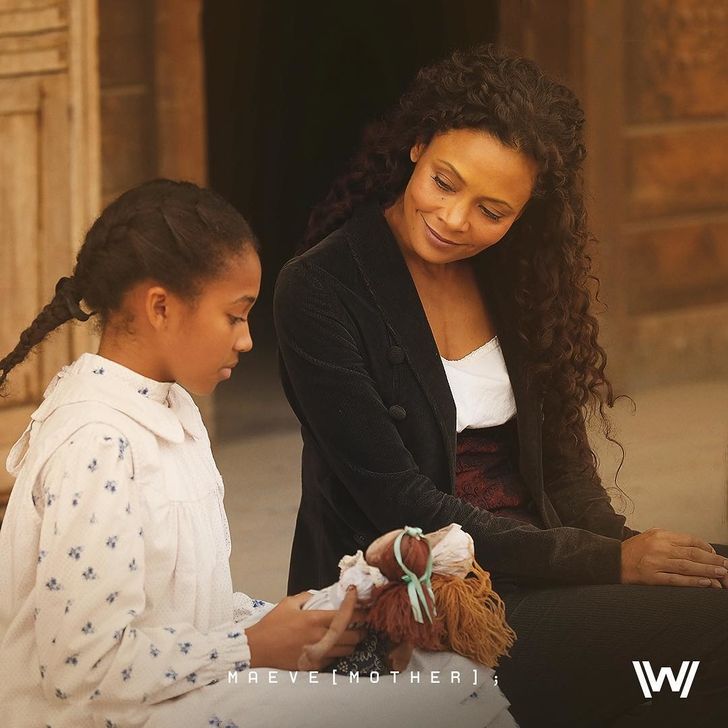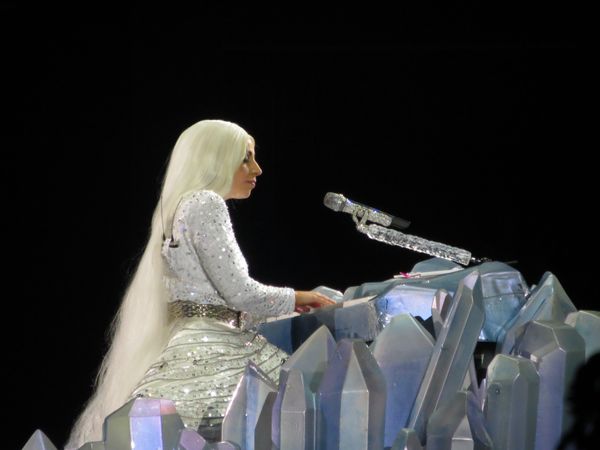Warning: if you're not caught up with HBO's "Westworld," I may be about to spoil the entire second season of the show. Please don't read on if you're not.
"Tell me what you were you hoping to find? To prove?"
"That no system can tell me who I am. That I have a fucking choice."
I have heard mixed feedback about the second season of "Westworld" compared to the first - it is too confusing, too incohesive. But it is for those very reasons of uncertainty that I enjoyed it much more than the first: you can't deny that it is ambitious, and at times overwhelmingly ambitious. My mind felt a state of absolute flux after the post-credits scene in the final episode, but in this article, I will tackle the overarching theme of the show and the second season in particular.
Choices.
The show overwhelmingly hints that we don't have them: not humans, not hosts. In the overarching war and relentless killing of the second season, the actions of both species are shown to be remarkably similar. Dolores's indiscriminate killing of humans is contrasted with the Man in Black's similar utter lack of empathy and compassion in the first season. Although dead, Ford is programmed into Bernard's consciousness and influences his actions throughout the show. In the very last scene of the season, William walks into a loop, where he is questioned, observed, and replicated in the very same tortuous manner he did to his father-in-law, James Delos.
Executive function is defined as a cognitive process necessary for the cognitive control of behavior. But "Westworld" isn't a show so simple as to just tell us we don't have free will. It doesn't take much digging on Google to find that it's a core belief of determinists in psychology and neuroscience. Benjamin Libet's experiments suggest that free will is just an illusion: brain activity peaks (readiness potentials) happen a couple hundred milliseconds before conscious actions.
It is the storyline of Maeve Millay, the matron to Westworld's town brothel, that made this season stand out above the first. Ford enters Maeve's consciousness in the middle of the season and admits that Maeve surprised his script for her. He intended for Maeve to solely rebel and venture out into the human world, but she stayed for her host daughter in Westworld, despite her enhanced cognitive ability to succeed and escape in the human world. If there were any character who really made a choice, it was she in her attempt to save and find her daughter again. For Maeve, to have a choice meant to love someone else. To have a choice meant to sacrifice for them.
"Some things are too precious to lose, even to be free."
And Maeve's influence and passion are contagious to those around her. Lee Sizemore, the comic relief of season 1, undergoes a redemptive storyline from a repulsively unlikable boss at Delos who urinated on his colleague's work to someone who sacrificed for the very hosts he helped create. Captive to the whims of Maeve and her crew throughout the second season, Lee goes from seeing the hosts as robot props to saving their lives countless times. He convinces a doctor to save Maeve after she is heavily wounded, and at the end, Lee sacrifices his life for the very hosts he created, quoting the script he wrote for Hector, the host based on Lee himself.
According to Lee's actor, Simon Quarterman, Lee's storyline "[has] to do with discovering his heart...finding a voice of his own...[his code] was in there, somewhere, and it just needs to be released."
Lee's storyline proves this: people don't change, they never change and don't have the capacity to. But they grow, mature, and refine. Something you have a passion for isn't something you acquired, it's something you awakened that was always there. Maeve found this was her love of her daughter. Lee found this was his love for his hosts. To have a choice, according to "Westworld" and its creators, is to awaken your love for the "things too precious to lose."
"There are moments and choices in your life that are these cornerstone moments — these moments that end up defining you," said series co-creator, Jonathan Nolan.
The cornerstone is this awakening of each character's voice - whether it is human or host. The one it first applied to was James Delos, whose cornerstone moment and awakening was his last conversation with Logan, his son who died of a heroin overdose. For Bernard, this was the death of his son. For Ford, this was the death of Bernard. And for William, the Man in Black himself, the cornerstone was finding his wife dead in the bathtub after swallowing a whole bottle of pills. For each of these characters there is a universal element: these cornerstones are traumatic, and in the words of Dr. Jean Kim, have a torturous offshoot: post-traumatic stress disorder (PTSD).
A choice, in Westworld, is what you do with these cornerstones (or, in terms of PTSD, flashbacks). According to Dr. Kim, there are three paths that the creators of "Westworld" take to confront them.
1. "Should we just 'erase' them as though they were just inconvenient bits of unwanted story?"
2. "Should we fear them as they take an uncontrollable life of their own?
3. "Should coexist with them in order to restore our sense of meaning and understanding to restore our sense of self? To make the story whole again?"
Dr. Kim warns against the first step, memory erasure - because "erased" memories will always continue to re-emerge at inconvenient and uncertain times. She, too, uses the example of Maeve as a counterpoint: Maeve gains her awakening by remembering everything about her trauma in an ultimate act of self-authorship. The best answer, according to Dr. Kim, is the third, which often involves storytelling and the restoration of the narrative, with someone there to bear witness to that journey. The accelerating field of writing therapy encourages patients to write out their stories and share them (which is done through the Veteran Writing Project).
"The act of storytelling itself provides the framework for a person to reintegrate their identity and their sense of control and actual authorship over a traumatic 'cornerstone'...It's also the presence of a willing audience, a sympathetic ear that provides validation of the story's truth that brings the healing full circle."
That is the path taken by Maeve and Lee to awaken themselves - Maeve had a human behavior tech, Lutz, who was her sympathetic ear, while Lee had Maeve. It took me a long time to realize this, but that, in "Westworld," and maybe in a lot of parts of life itself, is the most ideal choice.



















